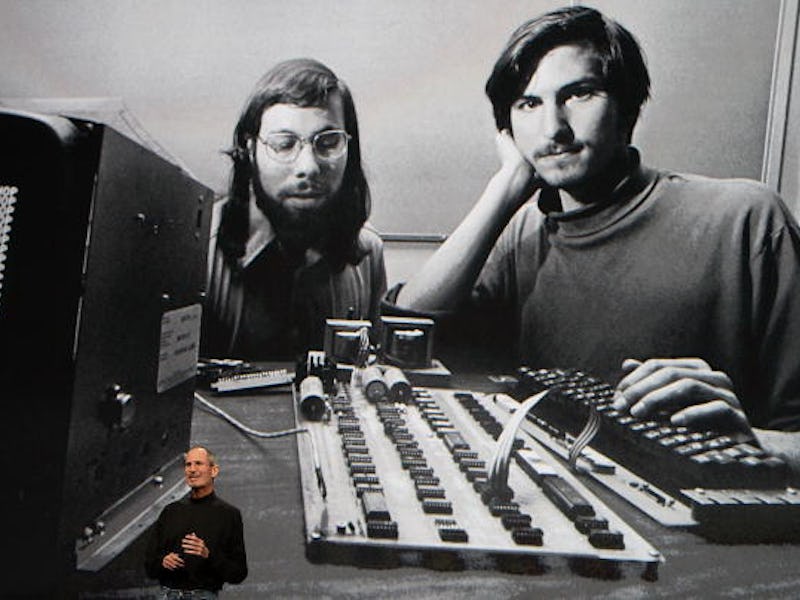'Steve Jobs' is 'Complete Fiction,' Says Chief Advisor to Kutcher 'Jobs'
Daniel Kottke was a character in Kutcher's film, but is nowhere to be found in Boyle's.

Today, a Los Angeles Times article details some of the recent critiques by Apple associates and Jobs family members about the Danny Boyle-directed, Aaron Sorkin-penned ‘Steve Jobs,’ which opens worldwide on Friday. The article leads off with a claim from Daniel Kottke, one of Apple’s first employees, who is most famous for being the dude who raved all about getting his chakras aligned with Jobs on some industrial-grade acid at Reed College in the early ‘70s, traveled with him to India and roomed with Jobs and his girlfriend Chrisann Brennan at the time that their conflict of paternity of Chrisann’s daughter Lisa began.
He was also pushed out of stock by Apple by Jobs, which was part of what prompted him to leave the company in the ‘90s.
Kottke dubbed Boyle and Sorkin’s film “complete fiction,” though he found it entertaining, and told the LA Times: “The film was mythologizing in action. But that’s been going on for quite a while, and Steve cultivated it. The mythology of Steve Jobs has just gone another generation here.” A nice little dig at Jobs’ ego there. Even if Kottke is claiming this is no shade, there is certainly some implied.
What’s interesting about Kottke being quoted as dubbing Steve Jobs as “complete fiction” is that he once said the opposite about a different Jobs film — that’s right, the Ashton Kutcher vehicle Jobs from 2013. Kottke advised on the early drafts of the script, which he helped hone from “painful” to convincing, and visited the set (Steve Wozniak refused to, but agreed to in Boyle’s film). When other early employee Bill Fernandez deemed the Kutcher movie “fan fiction,” Kottke disagreed, claiming that they “sincerely tried to make it as accurate as they could.” He also made the bold claim that “Ashton’s very good. I have no complaints with him at all, no complaints with his portrayal of Jobs.”
He’s different than other associates who have disputed the accuracy, who seem to believe that Sorkin had rendered Jobs as too mean and one-dimensional. That’s not the part that Kottke seems to take issue with, just overall factuality; if anything, Kutcher’s film actually paints a more unsympathetic portrait at certain moments.
Not only did Kottke advise on the 2013 Jobs — and was basically the only committed primary source advisor on it — but he has a highlighted storyline in it. Yes, there is an acid sequence in the movie.
Jobs’ old associates seem to really be having trouble wrapping their brains around the idea that this film is a fantastic takeoff on Jobs’ life and legacy, and not just another by-the-book, bullet-point-y chronology. Thank God it’s not, though; it’s what makes Kutcher’s Jobs miserable.